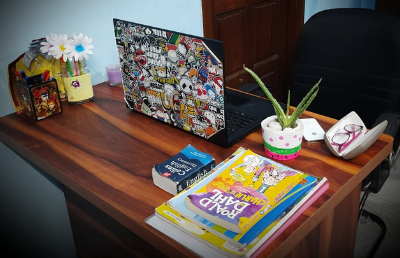As parents and educators, it’s natural to focus on academics as a primary measure of our children or students’ success. After all, good grades and academic achievements are often seen as the pathway to future opportunities. However, amidst this academic emphasis, we must not lose sight of the equally crucial role that socialising plays in a student’s holistic development.
In this blog, we’ll look into the myriad of reasons why socialising is crucial for students and why we at The Blue Bells School focus on it so much.
Building Communication Skills:
Socialising provides students with invaluable opportunities to hone their communication skills. Whether it’s engaging in conversations with peers, participating in group activities, or presenting ideas in front of an audience, these interactions help students develop the ability to articulate their thoughts effectively. Research suggests that strong communication skills are not only essential for academic success but also for future career prospects.

Fostering Emotional Intelligence:
Interacting with others allows students to navigate various social dynamics, understand different perspectives, and regulate their emotions accordingly. This fosters emotional intelligence, which is increasingly recognized as a key predictor of success in life. Students who are emotionally intelligent tend to have better relationships, cope with stress more effectively, and exhibit greater empathy towards others.

Promoting Collaboration and Teamwork:
In today’s interconnected world, collaboration and teamwork are indispensable skills. Socialising provides students with opportunities to collaborate with their peers, work towards common goals, and navigate conflicts constructively.
Through group projects, extracurricular activities, and team sports, we make sure that students learn the importance of cooperation, compromise, and collective achievement.

Enhancing Mental Health and Well-being:
Social isolation can have detrimental effects on mental health, particularly among students. Research indicates that socialising can alleviate feelings of loneliness, anxiety, and depression. By fostering a sense of belonging and connection, social interactions contribute to overall well-being. Encouraging students to participate in social activities can serve as a protective factor against mental health challenges.
Stimulating Cognitive Development:
Engaging in social interactions stimulates cognitive processes such as critical thinking, problem-solving, and perspective-taking. Through discussions, debates, and collaborative activities, students are exposed to diverse viewpoints and are challenged to think critically about complex issues. These cognitive skills are transferable across academic subjects and are essential for lifelong learning.

We interviewed some of our parents at The Blue Bells School on the topic and their responses on the topic were extremely interesting & valuable.
“As a parent, I’ve witnessed firsthand the positive impact of socialising on my child’s development. Not only has it helped her make friends and build confidence, but it’s also improved her academic performance. I’m grateful for the opportunities she’s had to socialise both in and out of school.”
“Socialising isn’t just about having fun; it’s a fundamental aspect of education. In my experience, children who are actively engaged in social activities tend to be more motivated, resilient, and collaborative.“
In conclusion, socialising plays a pivotal role in shaping students’ academic success, emotional well-being, and future prospects. By recognizing the importance of social interactions and providing ample opportunities for students to engage with their peers, parents and educators can empower them to thrive both inside and outside the classroom. Let’s prioritise socialising as an essential component of education and watch our students flourish.




